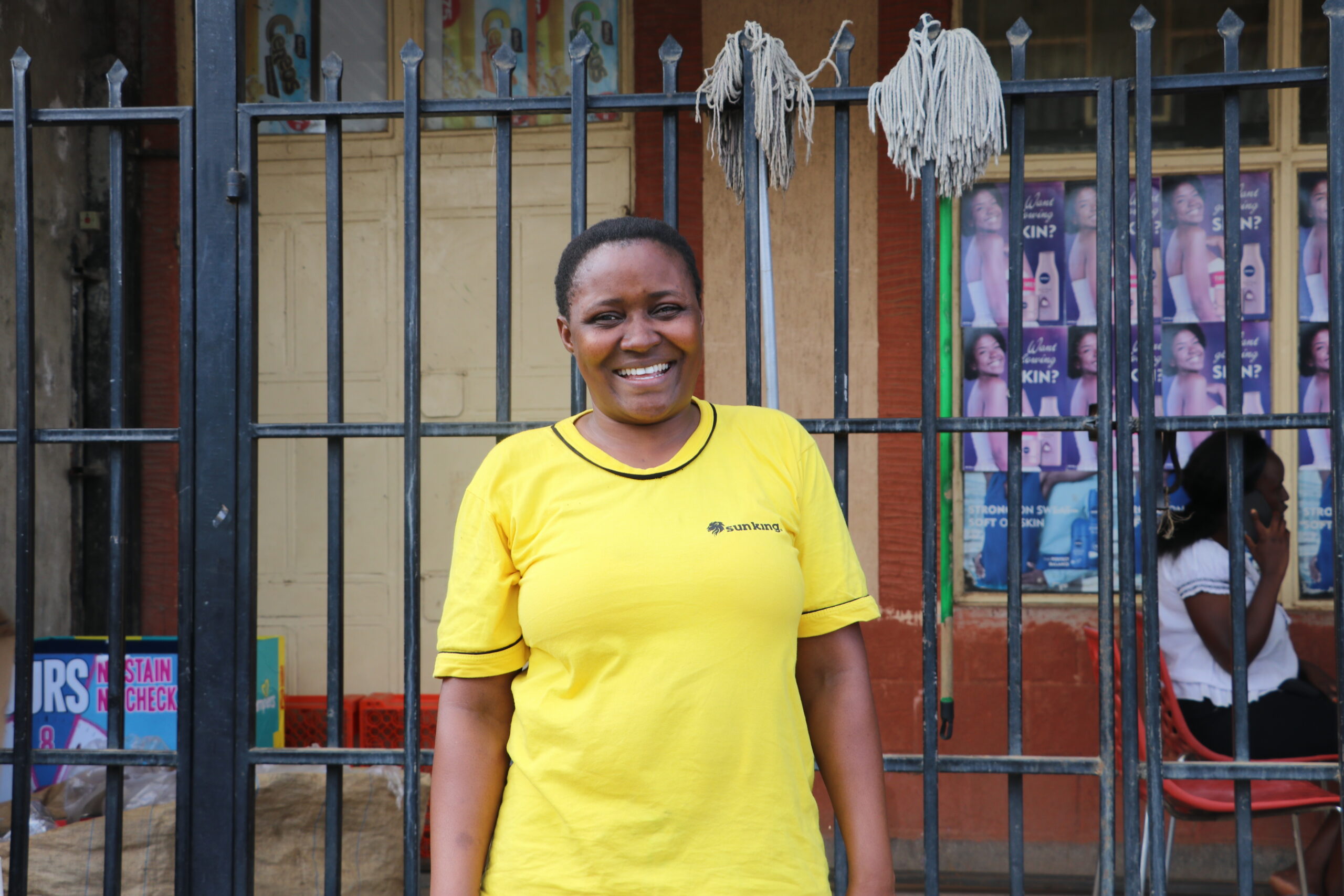Rebecca Aseyo’s dream of opening a portable solar products shop within Kakamega County’s Central Business District is finally a reality. Through the County Government, Rebecca was able to secure a stall that goes for Ksh.3000 monthly (USD 28). As also planned, her engagement with the local management team from Sunking Kakamega was successful and they agreed to supply her with portable solar products.
“Since all this was approved like two weeks ago, I am hopeful that in a month’s time, I will be stocked up and fully operational,” explains Rebecca.
Rebecca has also advanced to productive uses of energy and five months ago, she purchased a pair of solar powered shaving machines. Before the move, Rebecca had done a market research analysis and identified boarding schools within Kakamega county who didn’t have barber services provision as an opportunity.
However, a week after purchasing the machines, Rebecca’s ambition was cut short following the Ministry of Education Kenya guidelines warning non-teaching staff against accessing academic premises so as to help limit the spread of Covid-19. This left her thinking of an alternative solution and luckily she was able to spot one in Busia County’s Alema area; that is characterized by continuous power failure that lasts up to two weeks.
“The announcement came in just after I had finished talking to my mother who had called to inform me on how they had gone for eight days without electricity. This left me thinking of how solar energy would be of great benefits to her and the rest of the community members and without hesitation, I requested her to help me find a vacant shop within the market center where I could set up a barber shop,” narrates Rebecca
Four months later and Rebecca’s barber shop business is progressing well, she makes an approximate amount of Ksh.6000 (USD 55). She has created an employment opportunity for one youth and hopes that she will be able to employ another one soon. Her mother has also stepped in to support management as Rebecca stays approximately ninety kilometers away from where the shop is situated. She hopes that with the solidarity fund (Ksh.8500 – USD 78) issued to her by the Women in Energy Enterprises in Kenya (WEEK II) project, she will be able to start paying up for another set of the shaving machines and use the remaining amount to register her business.
This story has been developed by our partner Practical Action in East Africa as part of our Women’s Economic Empowerment Program.







